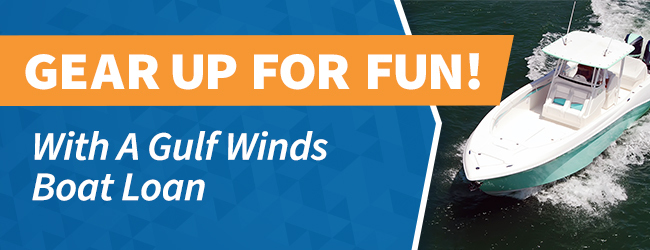What You Should Know Before Buying a Boat
Everyone wants a friend with a boat. However, being the friend that owns a boat is even better.
When you’re surrounded by water on Florida’s Gulf Coast, it’s hard to not have boat envy. Who doesn’t want to relax on the water or spend the day fishing? But before you make the big purchase, you should know exactly what you’re getting into. I spoke with local experts Tanner Nichols, Sales Associate at Legendary Marine and Drew O’Connor, Dockmaster at Palafox Pier, to provide you a few tips to consider before you get out on the water.
Know your boat
Before buying a boat, you’ll want to consider what type of recreation you want, says Tanner Nichols, sales associate at Legendary Marine. Do you want to fish? Ski? Or just leisurely cruise? That will determine the kind of boat you want and the price tag. An average 21 to 24-foot boat will cost anywhere from $30,000 to $60,000, says Nichols.
Maintain for life
Just like any vehicle, a well-maintained boat will last longer and provide less headaches in the future. Drew O’Connor, Dockmaster at Palafox Pier, says you can plan to keep your boat running for 20-plus years with regular maintenance. To start, flush your engine with every use — especially when it comes to boating in saltwater. For the exterior, he also recommends regular washing with cleaners like Salt-Away to help save time. “Salt gets into every nook and cranny and causes rust,” says O’Connor. “Use it anytime you go into saltwater.”
Boats also need regular oil changes, like a car. Even if you don’t use your boat everyday (although you probably want to) the recommendation from most boat manufacturers is to change the oil every 50 to 100 hours.
Costs to consider
One important thing to consider is the cost of not just buying a boat but keeping a boat. “Barring any major engine services, the cost of maintaining a boat is about $1,000 a year,” says Nichols. There’s also the cost of docking your boat, if you choose to do so. Spots are not easy to come by and can have high fees, but there is a big convenience factor as you won’t have to jockey with others at the boat launch or find a place to store your boat on land. However, this convenience comes at a cost. “It’s like paying for another boat,” adds Nichols.
Safety first
Unlike motor vehicles, you don’t need a license to drive a boat. But that doesn’t mean you shouldn’t learn how to safely operate a boat. O’Connor recommends boat owners — especially first-time boat owners — take the online boating safety course from America’s Boating Club. “A lot of people think driving a boat is like driving a car and it’s not,” he said. “Instead of a road, you’re on moving water.” The boating course also helps you learn the signs, markers and buoys you’ll see on the water.
All that to say, buying and maintaining a boat is a big responsibility. But it does pay off.
“The memories you make are pretty cool,” says O’Connor who shares his love of boating with his two young sons. “You gain a whole new perspective on the water.”

Jennie McKeon
Jennie McKeon is a University of West Florida graduate and a freelance writer in the Northwest Florida area. She has written for various newspapers, magazines, and websites covering all things local.
